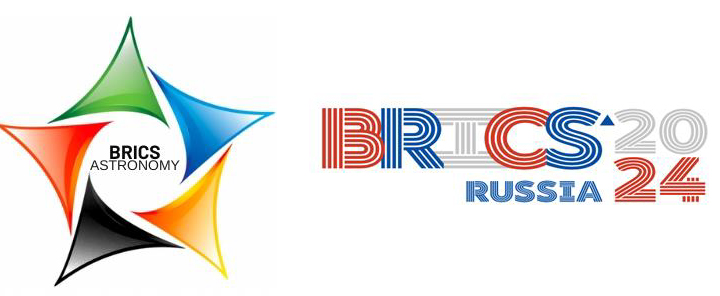
BRICS Astronomy Working Group Meeting 2024
The 10th BRICS Astronomy Working Group (BAWG) Workshop and Meeting was hosted in hybrid format by Kazan Federal University, supported by the Russian Ministry of Science and Higher Education on 9 – 13 September 2024 This meeting marked a significant milestone as the BRICS Astronomy Working Group (BAWG) celebrated its tenth meeting and, for the first time, welcomed the new BRICS members, who joined in-person and online.
The theme of the meeting was the BRICS Intelligent Telescope and Data Network (BITDN). During the first 3 days of the science meeting, representatives presented talks on a variety of topics in line with the sub-themes which are; Small bodies of the Solar system as transient objects, Transients in astrophysics, Astronomical data, Pipelines for astronomical data in multichannel observations, Science platform for global data network and Astronomical Instrumentation.
The BRICS Astronomy program aims to advance scientific research, technological development, and human capacity development among participating nations. Key activities include workshops on data handling and analysis, student programs offering hands-on experience, software development for telescope control and data processing, and engineering capacity building for telescope construction. These efforts aim to foster collaboration, enhance research capabilities, and cultivate a new generation of astronomers within the BRICS community. The science meeting highlighted the importance of collaboration in science but also emphasised the need for further collaboration in other aspects beyond multi-wavelength astronomy.
During the conference, participants had the opportunity to visit various sites in the beautiful city of Kazan, including a visit to the Astronomical Observatories of Kazan Federal University, which comprises two institutions: the Kazan City Astronomical Observatory and the Engelhardt Astronomical Observatory. The Kazan City Astronomical Observatory was built in 1837 and is located on the University campus. The suburban Engelhardt Astronomical Observatory, which is located 30 km west of Kazan City, includes Astronomical facilities for observations and residential buildings, all located within a park. The Astronomical Observatories of Kazan Federal University is a UNESCO World Heritage site, offering valuable insights into the observatory’s rich astronomical history. Participants of the conference had the opportunity to visit both observatories and experience their history.
After the science meeting, focal points and government representatives from the different countries met for the Business Meeting. During the meeting, strategic and operational matters were discussed and representatives provided feedback on the progress in the field of Astronomy in their respective countries. One of the key discussion points was on the funding for the BITDN flagship project. The BAWG encouraged member countries to continue engaging their respective funding agencies for funding opportunities and resolved to raise the need for funding at the BRICS Senior Officials Meeting. Another key area discussed was the proposal to establish a BRICS Astronomy Open-access and free-to-publish journal, discussions around this are still ongoing. It was also recommended that BAWG explore connections with other Working Groups that share common objectives. This approach would improve the effectiveness of BRICS STI, fostering better communication among the groups, strengthening collaboration, and advancing shared goals.The meeting concluded with the drafting of the Resolutions which the partner countries will now focus on for the next year.
The future of the BAWG appears bright and full of promise, especially with the addition of new members who will bring valuable contributions to the partnership. We extend our gratitude to the Russian Federation and Kazan University for their warm hospitality and commitment in organising this year’s meeting.More information about the conference can be found on the meeting website.
-
Mission of the BRICS Astronomy Working Group
-
The mission of the BRICS Astronomy Working Group is to promote cooperation between BRICS member countries in the field of astronomy and enabling technologies through joint activities of government, universities, research institutions, and industry, as relevant, to develop astronomical sciences, generate new knowledge, train human capital, develop new technologies and applications, and improve public understanding of science.
